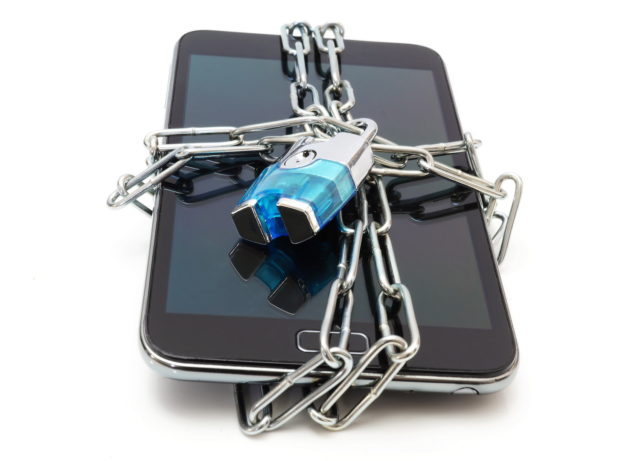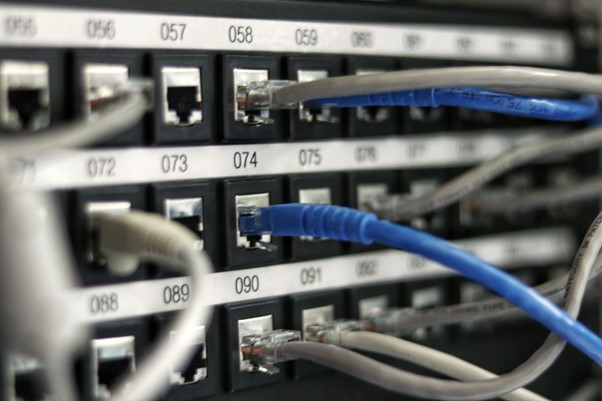You spend more time with your cell phone by your side than you do with your wife. The gadget is loved by many people who, due to its “proximity”, end up treating it as a close friend. In recent times, however, they have become the preferred target of cybercriminals, who take advantage of users’ negligence and end up managing to hack and invade devices. For this reason, you probably don’t want to leave it unprotected and want to take advantage of as many features as possible to keep it safe.
Table of Contents
Check out 10 helpful tips to keep your device out of trouble.
1. Use passwords wherever you can
You can prevent other people from accessing the device using a password (or unlock pattern on Android). There is no doubt that this is the most basic form of security, but it is extremely efficient and prevents confidential information from being seen by others.
Some applications offer the possibility to add a password to protect access to the software. Still, it is advisable to protect access to the device’s home screen to protect applications that may contain sensitive information and private content, such as Mail on iPhone and Gmail on Android.
2. Protect your iCloud and Google accounts
A lot of people don’t know this, but if someone manages to access your iCloud or Google account, they can have access to a lot of information and content. An efficient way to prevent this from happening is to enable two-step authentication on both accounts.
Both Apple ID and Google Account control access to any and all services offered by companies that are associated with your smartphone. If a stranger has access to them, he will not only be able to use your information, but he will also be able to remotely erase all files and data without his knowledge.
3. Avoid jailbreaking or rooting your device
If you really know what you’re doing and are aware of the implications of these procedures, then that’s fine. However, if you’re only trying to make them because you’ve heard someone talk about them, or there’s some room for doubt in your head about the idea, then avoid them.
It is not uncommon for reports of people who carried out the processes and ended up turning their smartphones into paperweights. Those who have been successful, on the other hand, often complain about the impossibility of updating operating systems to the latest definitions released by manufacturers.
It’s true that you can install some cool apps and customize your device’s settings to make it look nice, but that also means you might be installing apps that contain malicious software. But that concerns the next item.
4. Be careful with the apps you install
This advice is especially useful for those who use Android. Google recently removed more than 50,000 applications suspected of being malicious software. This is mainly due to the fact that Google is flexible – and sometimes even very lenient – with the apps that are included in Google Play.
In Apple’s App Store, things are a little different. Apple checks all applications submitted to the store and vetoes any that have any hint of malicious code. Although it helps to curb and prevent more serious cases, this does not mean that there are no attempts and/or applications that go unnoticed by the company’s sieve.
Before downloading any app and installing it, be sure to read its recommendations and search for information about it on the internet.
5. Prefer official apps
If you are doing financial transactions – whether at the bank or on the stock exchange – always give preference to the application intended for this. It is better to use an official application, which has all possible security measures to protect your data and information than to expose yourself using your phone’s browser.
6. Control what apps can access
Not infrequently we come across the message “‘Such an application wants to access ‘some of your data” on the iPhone. Make sure you always read the message completely and make sure that the application can access that information and don’t just quit clicking “OK” every time. If you’re going to click on something all the time, it’s best to click on “Disallow”. If this prevents the app from working correctly, you can manually modify the option later.
On Android, things are much worse and applications often ask for permission to access data that will never be used. Some time ago Lifehacker made a post (in English) teaching people to protect themselves from apps that require a lot of access. So be aware and be careful with it.
7. Get in the habit of backing up your data
Unfortunately, we Latin Americans still don’t understand the importance of the habit of backing up our data. It is important both when we accidentally drop the smartphone in a swimming pool, as well as when it is stolen, or even in case you need to format it.
On iPhone, files can be backed up locally using iTunes or to the cloud using iCloud. If in doubt, it’s good to use both just “just in case”. Android, on the other hand, has a built-in tool that backs up the user’s most important information. If you want to keep all information and files safe, the user will have to resort to third-party solutions.
8. Keep your operating system up to date
This advice is old and Windows users are tired of hearing it. Even so, it is important to say: always have the latest version of the operating system installed on your device.
Many consider it silly and believe that they only deal with cosmetic issues. But the truth is that your iOS or Android updates contain revisions that will help your device stay safe. You can wait a few days to be sure it won’t affect your main applications, but never, ever, fail to install an update for your operating system.
9. Be careful where you use Wireless and Bluetooth
It may seem a little ridiculous, but when you’re not at home (or somewhere you know), turn off your wireless and Bluetooth connection on your device and give preference to your 3G or 4G connection. Unlike your home network, which you set up with some care and security, wireless connections in most public places don’t offer even the slightest bit of security. By connecting to them, you become vulnerable and susceptible to attacks by hackers who may be keeping an eye on the network. It doesn’t matter if you go to the bank or just that gossip site: turn off the wireless network to avoid problems.
Problems involving intrusion via Bluetooth are rarer, but the number of cases has increased in recent months. This fact has been occurring mainly due to the connection of devices to wearable devices, such as smart watches, through the resource. If only one of them has Bluetooth enabled and can be discovered, hackers can take advantage and steal data in the traffic between your device and your phone.








